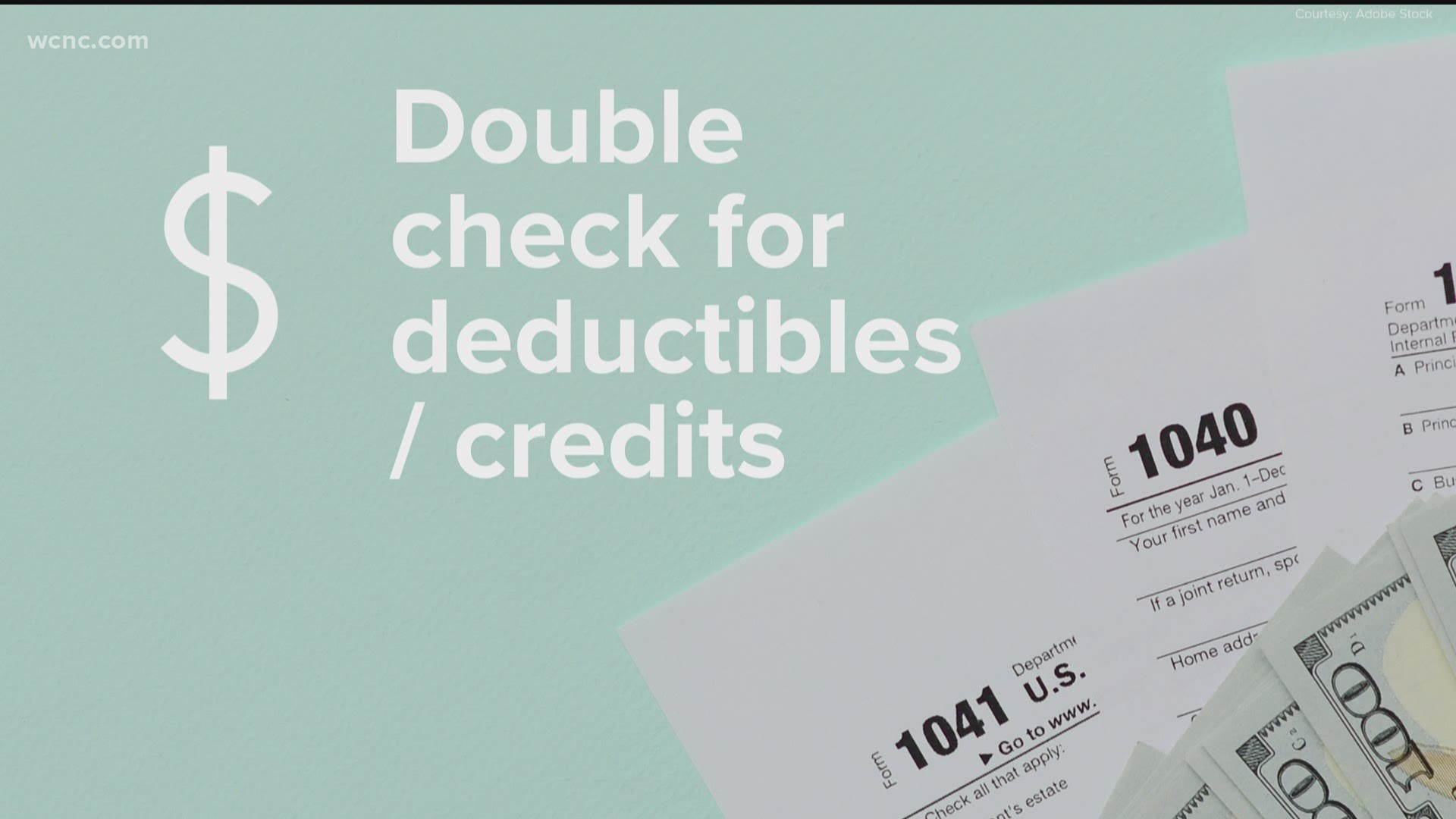CHARLOTTE, N.C. — Americans have until Monday, May 17, to file their 2020 income taxes with the Internal Revenue Service (IRS).
This year's tax deadline was delayed from April 15 to May 17 to allow taxpayers and the IRS more time to handle changes brought on by the COVID-19 pandemic. If taxpayers are unable to file their 2020 returns by May 17, the IRS may grant an extension until Oct. 15.
“The IRS wants to continue to do everything possible to help taxpayers navigate the unusual circumstances related to the pandemic, while also working on important tax administration responsibilities,” IRS Commissioner Chuck Rettig said in a statement in March when the tax filing date was extended.
Here's everything you need to know about filing an extension with the IRS for your 2020 federal income taxes
How to file for an extension
To request an extension on your federal taxes, taxpayers can fill out Form 4868 through their tax professional, online tax-filing software (such as TurboTax, TaxSlayer, TaxAct or Credit Karma) or by using the "Free File" tool on the IRS website.
To be granted an extension, taxpayers must estimate their tax liability for 2020 on the form and that's not all ...
You can file later but you must pay now
According to the IRS, filing for an extension on your federal income taxes isn't a way to avoid paying back money owed to the government. To avoid any interest or late penalties, taxpayers should pay their estimated owed federal income tax by May 17, 2021.
If taxpayers fail to pay what they owe, interest will be charged from the regular due date until the tax is paid.
WCNC Charlotte is always asking "where's the money?" If you need help, reach out to the Defenders team by emailing money@wcnc.com.
What if I am living abroad or serving in the military overseas?
According to the IRS' website, taxpayers are allowed an automatic two-month extension to file and pay their federal income tax if they are a U.S. citizen or resident alien, and on the date of their return are:
- Living outside the U.S. and Puerto Rico and your main place of business or post of duty is outside the United States and Puerto Rico, or
- You are in military or naval service on duty outside the United States and Puerto Rico.

